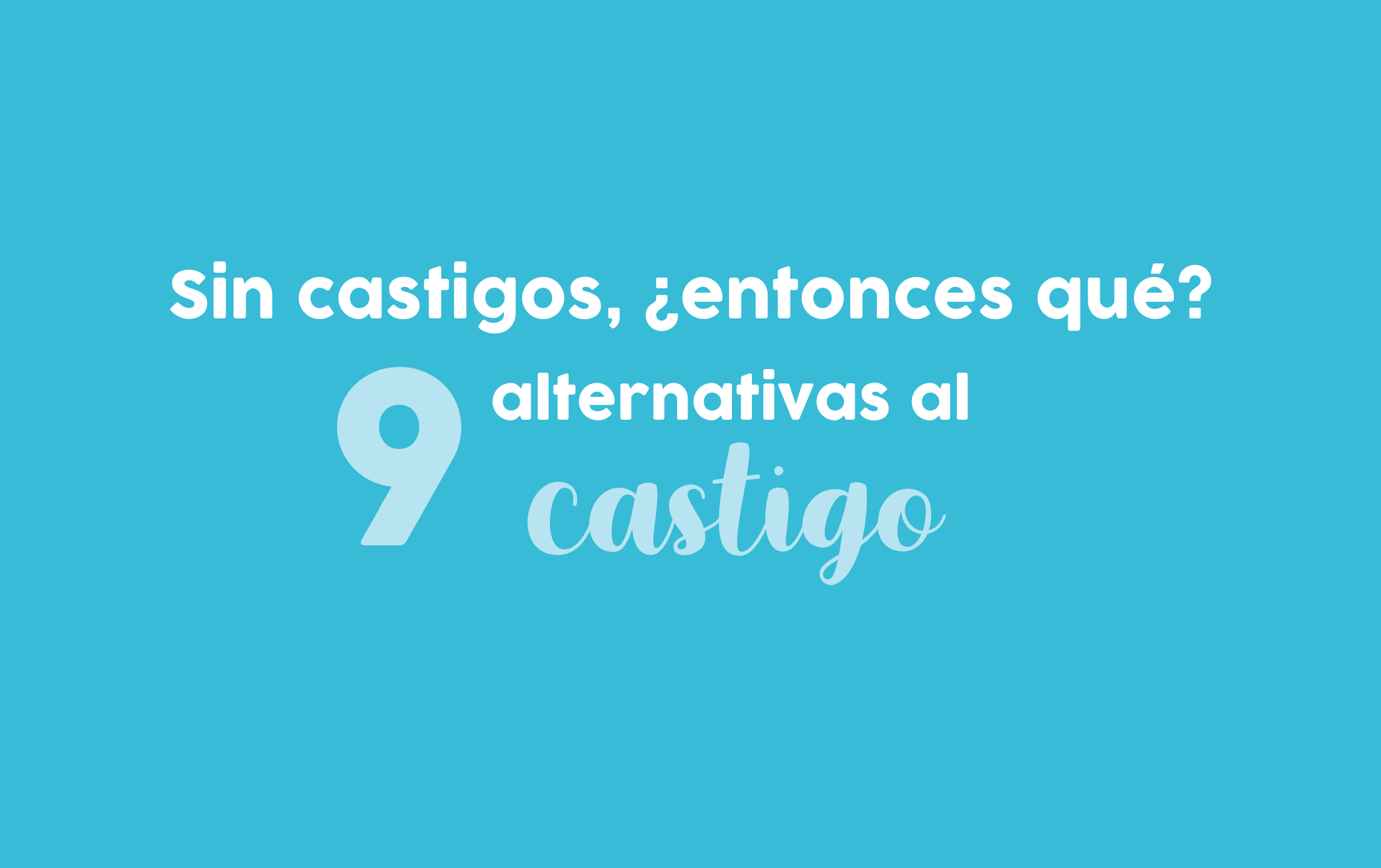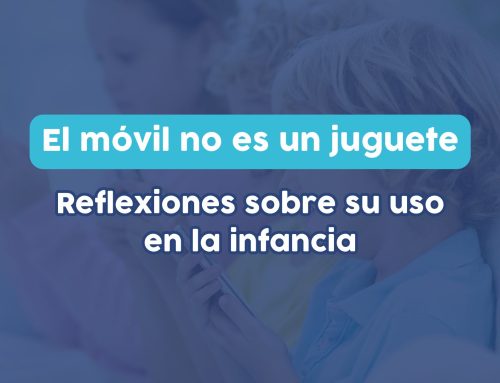En el post de hoy comparto el artículo que he escrito para la comunidad de crianza de Cataluña criar.cat. Muchas gracias Alba Carreres por la invitación.
Podéis leer el artículo original en catalán aquí. Y a continuación os dejo la traducción al español:
¡Únete a mi canal de Telegram para no perderte nada! 😊
Instagram para familias: educación positiva y actividades infantiles 💛
¡Nuevo! Instagram para profesores: recursos educativos y herramientas TIC 👩🏻🏫
Descubre por qué el castigo no es educativo y 9 herramientas útiles para evitarlo
«Estás castigado! Así aprenderás que esto no se hace». El castigo no soluciona la razón por la que una criatura realiza una conducta inadecuada.
¿Entonces no funcionan los castigos? Sí, está claro que funcionan. Funcionan en el momento, ya que frenan el mal comportamiento en ese instante. ¿Y por qué funcionan? Pues porque mediante el castigo conseguimos que el niño sienta miedo o se sienta mal por lo que ha hecho.
¿Pero es esto lo que pretendemos? ¿Queremos que se sientan mal por aprender?
El castigo no es educativo, es meramente punitivo. Su objetivo es penalizar al niño, no le enseña ningún tipo de habilidad. Cuando castigamos, nuestros hijos acaban obedeciéndonos por miedo a nuestra reacción.
Pero, si no le castigo… ¿entonces qué hago?
En este post comparto contigo 9 herramientas que puedes utilizar como alternativa al castigo:
1. Anticipa
Una herramienta de prevención es dejar las normas claras con anterioridad. Por ejemplo: tu hijo te pide ver un rato la tele. Antes de poner los dibujos, acordad el tiempo. Y para ello deberemos adaptarlo a su edad para que nos entienda. En lugar de decirle «tienes 10 minutos» (en edades tempranas no tienen asimilado la noción temporal) mejor dile: «vemos 2 capítulos y cuando acabe el segundo, apagamos la tele».
2. Date un tiempo
Nos han vendido la idea de que hay que solucionar los problemas lo antes posible. Pero no tiene por qué ser así. Desde el enfado y la rabia no es posible llegar a acuerdos respetuosos. Si ves que con tus palabras o tus actos puedes herir, mejor aléjate de la situación hasta que recuperes la calma: “Ahora mismo estoy muy enfadada y necesito estar sola”. Recupera la calma antes de actuar.
Si tu hijo es pequeño y no puede quedarse solo en la habitación, intenta centrarte en tu respiración y recuerda que sólo un niño. Un niño haciendo cosas de niño. No lo tomes como un ataque personal.
Cuando ambos estéis más tranquilos, podéis reanudar la conversación y buscar una solución ya desde el diálogo y el entendimiento.
3. Enfócate en la solución
A veces entramos en una espiral de reproches, «ya te lo dije» y busquéda de culpables. Los niños no aprenden a base de sermones ni represalias. Mejor centrémonos en buscar una solución. Implícale en el proceso, hazle sentirse parte. «¿Qué podríamos hacer para solucionarlo?». Podéis hacer una lluvia de ideas y seleccionar una solución relacionada, respetuosa, razonable y útil. Es importante que la solución cumpla estas características, de lo contrario estaríamos hablando de un castigo encubierto.
4. Involúcralo
Los niños, al igual que los adultos, tenemos la necesidad de pertenecer, sentir que contribuimos, que somos útiles. Pídele ayuda, anímale a comprometerse y a ganar autonomía. Hay muchas tareas que los niños pueden hacer desde pequeños. ¿No le gustan las verduras? ¿Y si le pides que te acompañe al supermercado, elija la verdura que quiere cenar hoy y te ayuda a cocinarla? De paso haréis una actividad divertida y pasaréis tiempo juntos.
5. Valida su emoción, no la conducta
Todas las emociones son válidas y tienen su función. Negarlas no es la solución. Lo que debemos hacer es mostrar cómo gestionarlas, y esto los niños lo aprenden con el tiempo, a medida que se enfrentan a situaciones agradables y no tan agradables. Y sobre todo lo aprenden a través de nuestro ejemplo: ¿cómo reaccionamos nosotros cuando sentimos rabia, frustración o impotencia?
Pero validar su emoción no significa que validemos su conducta. “Entiendo que estés enfadado con tu hermano porque ha roto tu juguete. Y aún así no voy a permitir que le pegues. Así no se solucionan los problemas”.
6. Modela, sé ejemplo
Muéstrale cómo se resuelven los problemas sin recurrir a la violencia verbal ni física. ¡Porque esto no se aprende por arte de magia al cumplir la mayoría de edad! ¿Quieres que tu hijo cuando sea adulto tenga capacidad de autocontrol? Entonces tendrás que trabajarlo desde pequeño educando desde el ejemplo. De poco sirve decirle «¡te he dicho mil veces que no se chilla!» si se lo decimos gritando. Los niños no aprenden con lecciones magistrales. Necesitan nuestro ejemplo.
7. Ofrece opciones limitadas
¿Te imaginas estar todo el día recibiendo órdenes? “Vístete, recoge los juguetes, ven aquí, ahora come esto, vete ya a dormir…”. A todos nos gusta sentir que podemos elegir, que tenemos control sobre nuestra vida y podemos tomar decisiones. Hay momentos en el día a día en los que podemos dejar que nuestros hijos elijan y tomen decisiones. Por ejemplo, a la hora de vestirse: ofrécele dos conjuntos y que él elija qué quiere ponerse entre esas dos opciones.
8. Pon límites claros
Los límites son necesarios y dan seguridad a los niños. Muchas veces les decimos lo que no pueden hacer, pero no les decimos lo que esperamos que hagan. Por eso, a la hora de establecer los límites, es importante que sean claros, que los formulemos en positivo y que nos aseguremos que los entienden. Por ejemplo: en vez de decir “no puedes cruzar la calle tú solita”, mejor dile: “para cruzar la calle tienes que darme la mano”.
9. Revisa tus expectativas
A menudo, el problema no está en lo que los niños hacen o dejan de hacer. El problema es que los adultos tenemos expectativas que no son realistas. Pretendemos que los niños se comporten de una forma que no corresponde ni con su edad ni con su nivel de desarrollo.
Por ejemplo: pedir a un niño de dos años que esté tres horas sentado en la silla del restaurante es poco realista. Si le estoy pidiendo algo poco realista para su edad, me tocará adaptarme a mí y buscar una alternativa. Nosotros somos los adultos.
Espero que estas herramientas te hayan resultado de utilidad y puedas ponerlas en práctica. Como bien sabes, en la crianza no hay recetas mágicas. Pero sí existen herramientas que nos ayudan a conectar y actuar de forma consciente, en lugar de reaccionar y dejarnos llevar por la desesperación del momento.






